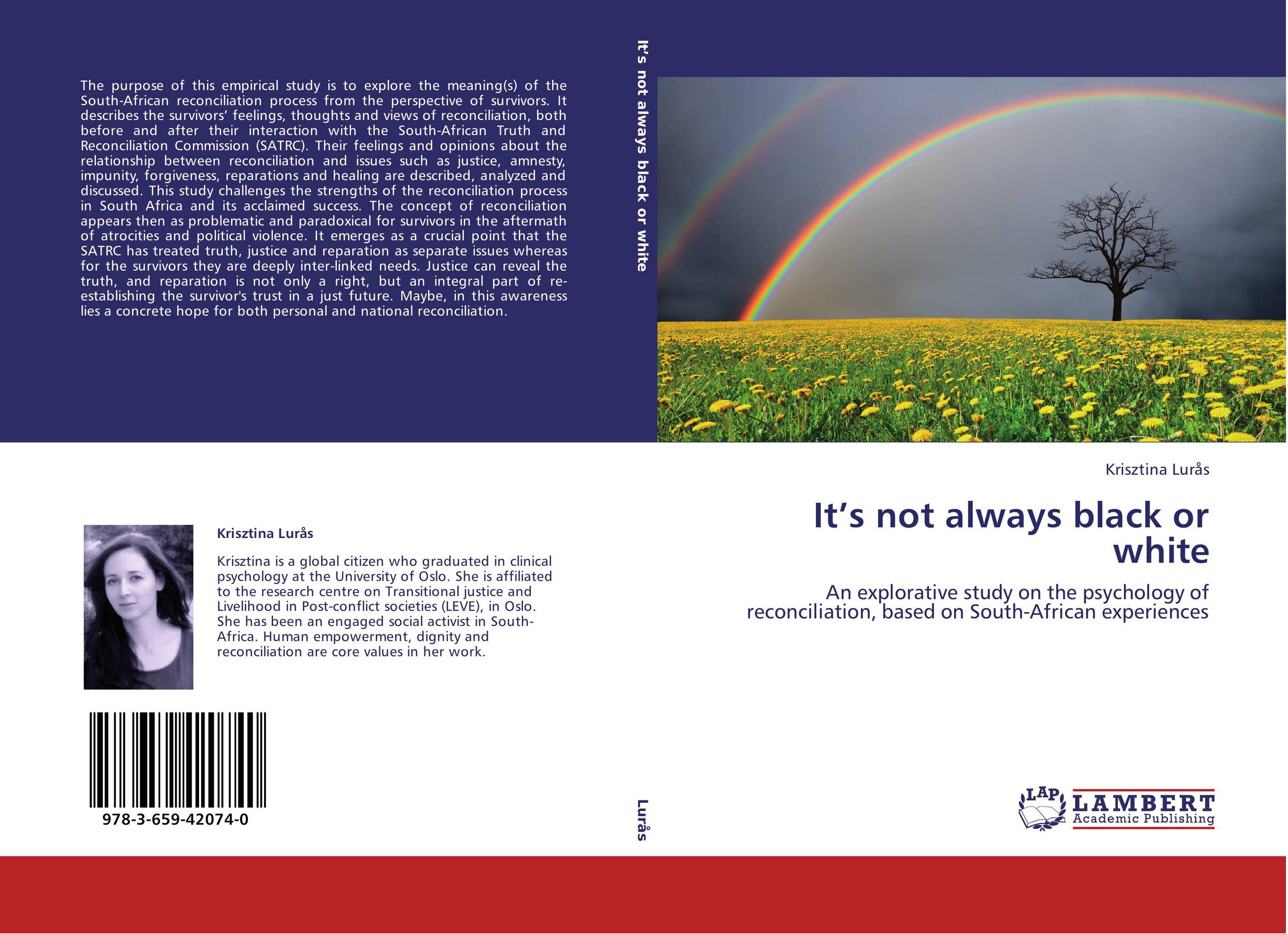| Поиск по каталогу |
|
(строгое соответствие)
|
- Профессиональная
- Научно-популярная
- Художественная
- Публицистика
- Детская
- Искусство
- Хобби, семья, дом
- Спорт
- Путеводители
- Блокноты, тетради, открытки
It’s not always black or white. An explorative study on the psychology of reconciliation, based on South-African experiences

В наличии
| Местонахождение: Алматы | Состояние экземпляра: новый |

Бумажная
версия
версия
Автор: Krisztina Lur?s
ISBN: 9783659420740
Год издания: 2013
Формат книги: 60×90/16 (145×215 мм)
Количество страниц: 116
Издательство: LAP LAMBERT Academic Publishing
Цена: 34897 тг
Положить в корзину
| Способы доставки в город Алматы * комплектация (срок до отгрузки) не более 2 рабочих дней |
| Самовывоз из города Алматы (пункты самовывоза партнёра CDEK) |
| Курьерская доставка CDEK из города Москва |
| Доставка Почтой России из города Москва |
Аннотация: The purpose of this empirical study is to explore the meaning(s) of the South-African reconciliation process from the perspective of survivors. It describes the survivors’ feelings, thoughts and views of reconciliation, both before and after their interaction with the South-African Truth and Reconciliation Commission (SATRC). Their feelings and opinions about the relationship between reconciliation and issues such as justice, amnesty, impunity, forgiveness, reparations and healing are described, analyzed and discussed. This study challenges the strengths of the reconciliation process in South Africa and its acclaimed success. The concept of reconciliation appears then as problematic and paradoxical for survivors in the aftermath of atrocities and political violence. It emerges as a crucial point that the SATRC has treated truth, justice and reparation as separate issues whereas for the survivors they are deeply inter-linked needs. Justice can reveal the truth, and reparation is not only a right, but an integral part of re-establishing the survivor's trust in a just future. Maybe, in this awareness lies a concrete hope for both personal and national reconciliation.
Ключевые слова: victims, South Africa, Democracy, Human Rights, Torture, Discrimination, prejudice, Grounded Theory, race, Reconciliation, Dehumanization, Empowerment, Forgiveness, peace, Dignity, Transitional Justice, Restorative justice, Reparations, Truth and Reconciliation Commission, Amnesty, impunity, Memorialization, Mandela, Tutu, Rainbow Nation, Apatheid, Social oppression, Xenofobia



